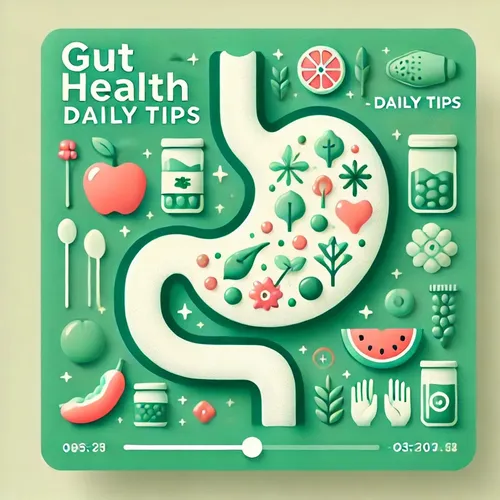Optimize Your Gut Health: The Key to Holistic Well-Being
- Author
- Quiet. Please
- Published
- Sun 07 Sep 2025
- Episode Link
- https://www.spreaker.com/episode/optimize-your-gut-health-the-key-to-holistic-well-being--67658434
Gut health is an increasingly popular topic as more people become aware of its vital role in overall well-being. The gut, often referred to as the "second brain," is home to trillions of bacteria and other microorganisms, collectively known as the gut microbiome. A balanced gut microbiome is crucial for efficient digestion, nutrient absorption, immune function, and even mental health.
One key way to support gut health is through the consumption of probiotics and prebiotics. Probiotics are live beneficial bacteria that can be found in foods like yogurt, kefir, sauerkraut, kimchi, and other fermented foods. These microorganisms help maintain the balance of good and bad bacteria in the gut. Consuming a variety of probiotic-rich foods can introduce different strains of bacteria, each offering unique benefits.
Prebiotics, on the other hand, are non-digestible fibers found in foods such as bananas, onions, garlic, leeks, and asparagus. These fibers serve as food for the good bacteria already residing in the gut, promoting their growth and activity. A diet inclusive of both probiotics and prebiotics fosters a thriving gut ecosystem.
Another important aspect of gut health is fiber intake. A high-fiber diet supports regular bowel movements and feeds healthy gut bacteria. Whole grains, fruits, vegetables, legumes, nuts, and seeds are excellent sources of dietary fiber. Consuming a wide range of these foods ensures diverse fiber types, benefiting various gut bacteria.
Staying hydrated is equally essential. Water aids in digestion and the absorption of nutrients, while also keeping the digestive tract functioning smoothly. It helps soften stool and prevents constipation, which is vital for maintaining gut health.
Limiting the intake of processed and high-sugar foods is crucial as well. These foods can promote the growth of harmful bacteria in the gut, leading to imbalances and inflammation. Reducing refined sugars and artificial sweeteners in your diet can benefit your gut microbiome significantly.
Stress management is another critical element. Chronic stress can negatively impact gut health by altering its microbiota composition and increasing intestinal permeability. Engaging in regular physical activities, practicing relaxation techniques like meditation or yoga, and getting adequate sleep can help reduce stress levels, thereby promoting a healthier gut.
Ensuring a variety of plant-based foods in your diet can encourage a healthy microbiome by supplying different nutrients to diverse bacterial species. Aim for a colorful plate, incorporating different types of fruits and vegetables to maximize the range of vitamins and minerals you provide your gut.
Incorporating these habits into your daily routine can foster a healthier gut microbiome, which in turn supports better digestion, stronger immunity, and overall well-being. By making thoughtful choices about what you eat and how you manage your lifestyle, you can promote lasting gut health.
For more http://www.quietplease.ai
Get the best deals https://amzn.to/3ODvOta
